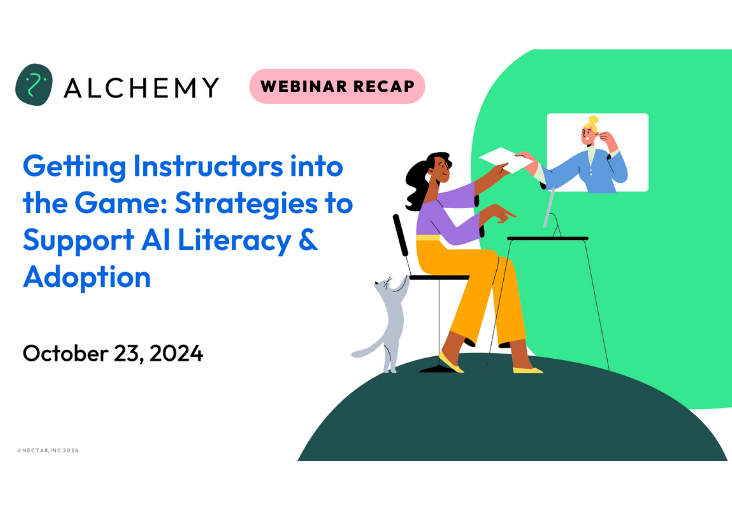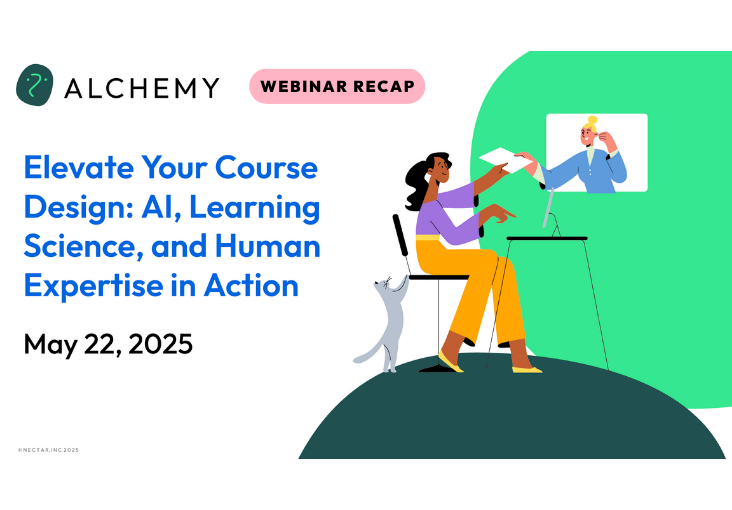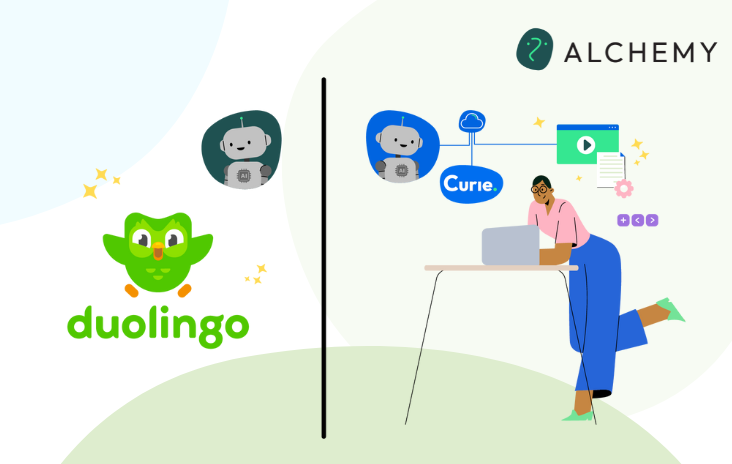Recap
Boosting AI Literacy: Strategies for Faculty Adoption in Higher Education

In a recent webinar, “Getting Instructors Into the Game: Strategies to Support AI Literacy & Adoption,” hosted by Brett Christie, Ph.D., and featuring guests Casandra Silva Sibilin (CUNY) and D.J. Hopkins, Ph.D (San Diego State University), participants explored how institutions can support faculty in adopting AI technologies. With a lighthearted football theme to mark the fall season, the session highlighted how institutions can support AI adoption while building literacy among faculty.
Setting the Stage with Institutional Insights
The session opened with a quick poll designed to gauge the current state of AI adoption across participants’ institutions. Though the poll revealed a broad spectrum of readiness, 75% of respondents (N = 191) indicated that there is currently minimal or no coordinated AI integration at their institution. This helped frame the later discussions with Dr. Christie emphasizing the importance of understanding your institution’s unique context before moving on to AI initiatives.
A Brief Overview of AI Adoption Data
Dr. Christie provided a snapshot of recent AI adoption data in higher education, underscoring the rapidly increasing interest in AI tools. He highlighted key statistics that demonstrated both the promise and the challenges institutions face in embracing AI. For instance, many faculty members are hesitant to adopt AI due to concerns over time, resources, and potential ethical implications.
Literacy and Adoption Efforts from Panelists
Our guest speakers shared successful efforts in promoting AI literacy at their institutions, such as:
- Developing workshops to demystify AI for faculty, focusing on how these tools can enhance rather than replace human teaching.
- Creating institutional AI literacy programs that provide structured learning pathways for instructors to integrate AI into their courses.
- Faculty peer support networks that allow for the exchange of ideas and practical experiences with AI tools, fostering a culture of experimentation and shared learning.
Attendees also participated in the chat, sharing their challenges and success stories with AI adoption, with concerns ranging from faculty burnout to equity in AI access.
Building Community and Momentum
In the final segment, our participants discussed the critical role of building both community and momentum around AI adoption. Stressing that AI initiatives are most successful when they are approached strategically and collaboratively. Some key strategies shared included:
- Traditional Approaches: Using faculty development days and internal conferences to introduce AI literacy and provide hands-on experiences.
- Innovative Approaches: Gamifying the AI learning process or embedding AI tools into everyday teaching tasks to ease faculty into adoption. Some institutions are experimenting with AI tools in administrative functions, which frees up more time for faculty to focus on teaching.
- Sustaining Momentum: Momentum builds when faculty see real benefits from AI tools, particularly in terms of time-saving and enhanced student engagement. Sustaining this momentum requires ongoing support and incentives, such as institutional recognition for AI-driven innovations in teaching.
Conclusion
The insights shared throughout the session emphasize that successfully integrating AI in higher education requires a multifaceted approach. Institutions need to focus on building AI literacy through targeted professional development, creating a supportive community that fosters experimentation, and addressing common barriers like time constraints, ethical concerns, and equity in access. By aligning AI initiatives with institutional goals and providing ongoing support, educators can leverage AI to enhance both teaching efficiency and student engagement, ultimately preparing students for a future where AI literacy is essential.
For more in-depth insights and strategies, watch the full webinar on our YouTube channel.
Watch Now

